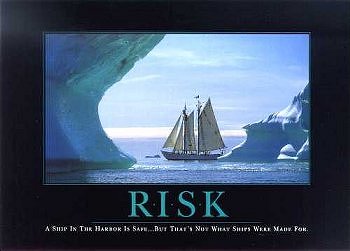Gift Cards! They are all the rage in today's society of debit and credit cards; another way to avoid using, or, during the Christmas season, giving cash or cheques. And they make a lot of sense when you stop and think about it. Gift Certificates were a great alternative to buying a present for that hard-to-shop-for person, or family and friends who lived further away. They were a thoughtful gift that allowed someone to get something they actually wanted while cutting down on postage costs to the giver. They also allowed you to say that you were thinking of someone (by choosing a particular store) even if you weren't quite certain what they would like or what they would need--much more so than giving cash; at least you were choosing the store. And the stores must have loved the extra customers they gained simply by reminding consumers of all these points and being a store that offered gift certificates.
As gift certificates became the norm someone decided that Gift Cards had some very unique advantages over the paper Certificates. First, Cards could be reloaded which would hopefully keep a customer coming back (though quite frankly I don't think I have ever reloaded a gift card from any store). Also, because they could be reloaded it allowed the company to tout the environmentally friendly angle--reuse it rather than toss it out. As I was thinking about this I began to wonder if the plastic cards were somehow cheaper than the paper certificates. I wouldn't have thought so, but it could also help explain the switch. As it turns out I was right the first time. According to a CBC.ca article the plastic is quite a bit more expensive. (Check out the article here for some other very good information about gift cards.) However, the cost of the cards is often easily made up for with the biggest advantage a company has when using the plastic over the paper: forfeited money. You see, when you used a paper gift certificate and spent less than the amount of the certificate in the store, they had little choice but to give you cash back as change (unless they had smaller denominations of certificates). But with the gift card, if you spend less than the card amount you are simply left with a small amount still on the card. And if you are anything at all like me then you have allowed many companies to keep quite a bit of your money over the years as you forget about the last .75 on the card, or even maybe $1 or $2 from a $50+ card. This is money the company sold to the giver, but the receiver never spent and is free money for them. That right there is a pretty good reason to switch to plastic.
I know, I know, what does all this have to do with you? For the first time, that I have seen anyway, companies are charging you a surcharge to purchase a gift card. That's right, you pay for the amount you want PLUS you pay an extra "whatever they want to charge you." I first saw this at BestBuy here in Grande Prairie. They had a price tag on their cards charging an extra penny--but only on the fancier, sparkly cards which had no packaging, which is a bit ironic because the cheap looking cards were free even though they were packaged in the large plastic CD cases. Since then I have seen, and been charged, a dollar on another gift card, and noticed that VISA is charging something like $5 on a $50 card (the charge goes up with the preset amounts.)
Does anyone else think this is a joke, or just me? Why not just give cash and tell the receiver where you intended them to spend it? Or is it worth the extra charge to show that you tried to shop for the person, but decided to give them some choice? Personally, I would buy the cheaper looking card and save the penny. When this isn't an option I suppose for now I will likely pay the extra . . . For now--my patience won't last long though, and this blog may be only the first step in my rebuke about being ripped off by companies.
Wednesday, December 3, 2008
Subscribe to:
Post Comments (Atom)


2 comments:
Were you also aware that some companies charge an administrative fee after so many months if you don't use it right away? It actually goes down in value month by month, or so I've heard. I thought I heard that the government was stepping in to set out some rules of just how much they can rip you off, but I don't know where that's at. Just beware and read the fine print(which most of us seldom do, which of course, the companies know!).
Actually, I did know that. I noticed it in the fine print--which I didn't have a chance to read until AFTER I had paid for and received the card from the company. Fortunately the card I have doesn't start charging the admin fee until 15 months after the purchase date, and if you ask them they will hold off until the 19 month. Then they subtract $2 a month to keep the card active.
Again, if they are going to offer their customers the convenience of a card, from which they often greatly benefit as well, you'd think they wouldn't have to charge these silly fees. But I guess the key words are HAVE TO aren't they.
Post a Comment